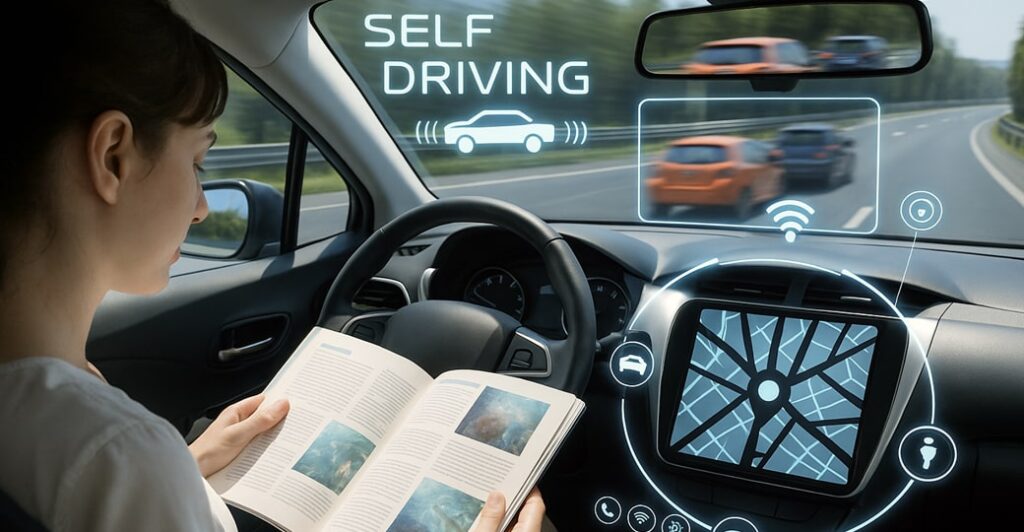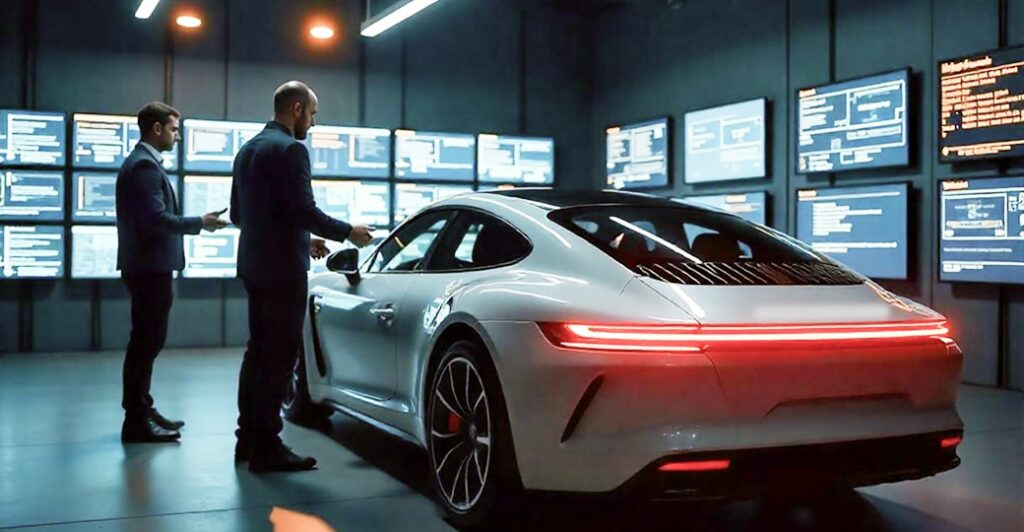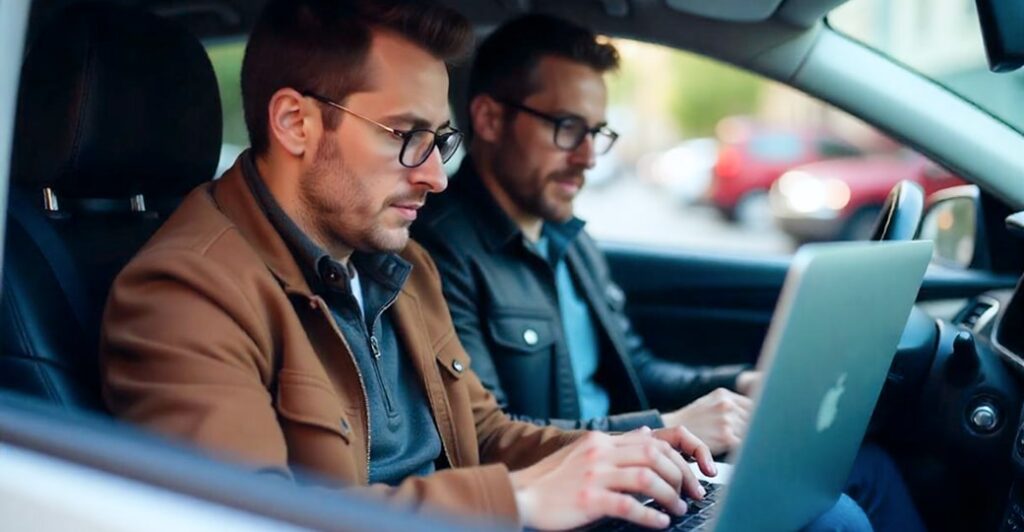Security transformation of the automotive industry
With the release of the ISO/TS 5083:2025 specification, the automotive industry has entered a new phase of cybersecurity standardization. This technical standard provides a robust framework to protect connected and autonomous vehicles in the face of increasingly sophisticated cyber threats.
We are proud that our projects and proposals comply with the new standard. This reinforces our leadership in automotive cybersecurity as a managed security service provider.
Our extensive industry experience and deep expertise enable us to proactively drive the industry forward by effectively addressing the key issues of modern automotive security.
Artificial intelligence in autonomous vehicles: safety and liability challenges

Artificial intelligence plays an important role in the development of autonomous vehicles. In our previous publications, we have already examined different aspects of AI security that are relevant to the automotive industry as well. The use of AI in unmanned vehicles involves significant issues of information and physical security, as well as responsibility for the decisions made by the computer.
Safety challenges for unmanned vehicles
AI models are vulnerable to adversarial attacks, where attackers manipulate input data to deceive the system. Forgery or even minor changes in the image of a road sign can lead to its misrecognition and a traffic accident.
The opacity of algorithms makes it difficult not only to predict AI decisions but also to investigate incidents. Deep neural networks often act as a black box, making it difficult to understand the logic behind critical decision-making in emergency situations.
Data compromise of automotive systems is not just an abstract threat to integrity and confidentiality with purely economic consequences, as it is in most other computer systems. Leaked or corrupted data for AI training can lead to system errors and reduced vehicle safety.
Finally, unforeseen errors in algorithms caused by software defects or training flaws could cause autonomous vehicles to act improperly. All of this ultimately jeopardizes our lives and health.
Responsibility for autonomous car solutions
According to WHO data, about 1.19 million people die in road accidents worldwide annually. That’s about 3,200 deaths per day, or 2 people every minute. In addition to the fatalities, 20 to 50 million people suffer various degrees of injury each year, many of which result in disability.
Such sad statistics have never stopped the automobile industry. Over the years, the rules of the road, legal and judicial practice have developed, so liability issues have simplified qualitatively, although they are growing quantitatively. But what about liability for decisions made by a computer? Who is to blame for the deaths and injuries of road victims of artificial intelligence?
The general issue of liability in autonomous cars remains a hot topic. ISO/TS 5083:2025 obliges automakers to implement robust cybersecurity measures, but legal principles require a clearer allocation of responsibilities and roles. For example:
- Automakers are responsible for hardware and software security.
- AI developers guarantee the reliability of algorithms.
- Operators ensure that systems are operated correctly.
- Law enforcement agencies ensure credible investigations and fair punishment of perpetrators.
- Insurance companies provide compensation for damages, etc.
If you are affiliated with one of these groups, don’t wait for AI cyber-physical security issues to snowball. Take early measures to mitigate risks and show your foresight and due diligence.
We help clients minimize risk by implementing transparent documentation processes and conducting regular audits. For example, for a German automaker, we have developed a logging system that captures the actions of autonomous systems, making it easier to investigate incidents and assign responsibility.
Success stories in automotive security

We are proud of our successful collaborations with leading car manufacturers in Europe, including renowned companies from France and Germany. Our portfolio covers the entire spectrum of automotive cybersecurity, from the design phase to operation.
On-board systems pentests
For our customer, a German automaker, we conducted a series of in-depth pentests for various onboard IT systems, including multimedia platforms, infotainment, telematics modules, and engine control systems. As a result of these pentests, we identified and helped remediate several vulnerabilities in many subsystems. This included critical vulnerabilities in the V2X (Vehicle-to-Everything) communication software. We have provided robust protection against attacks on vital vehicle functions.
Compliance with VDA ISA and ENX TISAX standards
Our expertise in the VDA ISA and ENX TISAX standards helps automakers and suppliers secure their supply chains. Since 2017, we have been supporting German and French automakers in successfully achieving TISAX certification by implementing rigorous access control and data protection processes. This enables our customers to significantly build partner trust and ensure compliance with international requirements.
vCISO Services
Our virtual Chief Information Security Officer (vCISO) services have become an important strategic resource for automakers and operators. In a flagship project, we developed a comprehensive cybersecurity strategy for a French brand, including real-time threat monitoring for a fleet of connected cars and staff training. This project reduced cybersecurity risks by 40% in the first year of implementation.
Our vision for the future of automotive cybersecurity

With the release of ISO/TS 5083:2025, cybersecurity is becoming a fundamental element of the automotive industry. We continue to invest aggressively in research and development so that our customers can confidently meet the new standards and effectively face future challenges.
Our advanced solutions, including free ones, extensive experience with the world’s leading automakers, and strategic vCISO services make us a trusted partner in creating a secure future for connected and autonomous vehicles.
Join us in building a secure automotive ecosystem together. Contact our team to learn how we can support your business in the age of digital mobility.
_________________________
Subscribe to us at x.com so you don’t miss our news and blog articles.

